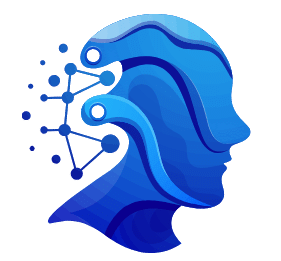Unpacking the Revolution: Post-Labor Economics and the Awe-Inspiring Future Ahead
Hey, remarkable reader! Are you ready to dive into a world where your job doesn’t define your worth? 🚀 Buckle up because we’re exploring the adrenaline-pumping, mind-blowing concept of post-labor economics! Imagine a society where machines liberate us from the daily grind, sparking a renaissance of creativity and innovation. That’s not sci-fi—it’s the near future!
What Is Post-Labor Economics?
First things first—let’s demystify the term. Post-labor economics refers to a transformational shift in how economies function without human labor as the central cog (source). By leveraging powerful AI and automation, we’re on the brink of rendering the traditional workplace obsolete. Excited yet?
The Tsunami of Change: AI and Automation
AI isn’t just about cool robots and faster computers. The impact of AI on human labor is profound—it’s reshaping every industry from manufacturing to medicine. As AGI (Artificial General Intelligence) advances, it challenges our very notions of “work” (Impact of AI on Labor). With each leap forward, we sprint closer to a fully automated economy, where AI and robots handle tasks, big and small.
Aren’t Machines Stealing Our Jobs?
Ah, the million-dollar question! It’s true, machines are poised to take over many current roles, but here’s the kicker: this allows us to focus on what truly matters. Instead of toiling away, we’ll engage in meaning jobs like philosophy, art, and innovation. These are roles that require a distinctly human touch—something no robot can replicate.
Statutory and Experience-Based Jobs: The Human Touch
Not every job can or should be automated. Statutory jobs, defined by laws needing human oversight (think the President), and experience-based jobs, like artists and therapists, will remain predominantly human (Statutory Jobs). These positions emphasize the irreplaceable quality of human interaction and creativity. So, fret not—there’s no robot CEO on the horizon just yet!
Rethinking Economics: From Consumer to Creator
With labor out of the equation, what becomes of consumer demand? Enter stakeholder capitalism. This reimagined economic model advocates for broad ownership where everyone benefits from automation and AI advances. By tokenizing productive assets via blockchain, everyone can own a piece of this new digital frontier, creating a decentralized economy that thrives on collective success.
Opportunities Galore: Securing Your Stake in the Future
Ready to invest in this bold new world? The rise of hyperlocal securities exchanges for automations offers unprecedented investment opportunities in AI and robotics. These platforms allow individuals to invest in the very technologies shaping their future, ensuring everyone has a stake in the prosperity AI generates.
The Bottom Line: Embrace the Inevitable
We stand at the cusp of a revolutionary era, defined by the shift toward fully automated economies. This isn’t about machines taking over but about redefining the value and potential of human creativity in a world where our basic needs are effortlessly met by technology.
So, what’s your role in this dazzling future? Dive deep, think big, and embrace the exciting possibilities that post-labor economics brings. Remember, in a world automated by AI, the most valuable resource is you—your mind, your creativity, and your passion.
🌟 Stay Curious, Stay Informed! 🌟
Subscribe to our newsletter for more thrilling insights into how technology reshapes our lives and work. Don’t just watch the future happen—be a part of it! Click here to subscribe and ensure you never miss a beat in this fast-evolving world!
Got thoughts, fears, or ideas about our automated future? Hit the comments below or tweet us @FutureInsights! Let’s keep the conversation going. After all, the future is what we make it!
#PostLaborEconomics #FutureOfWork #AIRevolution
Exciting times are ahead, and by understanding these shifts, you position yourself in the vanguard of an era ripe with opportunities and marked by profound transformations in how we live, work, and play. Remember, knowledge is not just power—it’s the future. Welcome aboard, future-thinker! 🚀
FAQs on Post-Labor Economics and the AI-Driven Workforce Transformation
What is post-labor economics?
Post-labor economics refers to a significant shift in economic frameworks where human labor is no longer the central aspect of productivity, replaced largely by AI and automation. It anticipates a world where machines handle most labor tasks, allowing humans to focus on creative, strategic, and interpersonal roles. Read more about this transformation here.
How are AI and automation reshaping industries?
Advancements in artificial intelligence and automation technologies are streamlining operations, reducing costs, and increasing efficiency across various sectors, from manufacturing to healthcare. These technologies are not only replacing repetitive tasks but also enhancing decision-making processes and creating new business insights. Learn more about the impact of AI on labor here.
What roles will remain uniquely human in an automated economy?
In the evolving job market, roles that require empathy, creativity, moral judgment, and interpersonal interaction are likely to remain uniquely human. These include jobs in the arts, therapy, strategic decision-making, and roles that require complex emotional interactions, such as certain types of healthcare and customer services.
What is stakeholder capitalism in the context of an AI-driven economy?
Stakeholder capitalism is an economic system where companies are oriented to serve the interests of all their stakeholders, including employees, communities, and shareholders. In an AI-driven economy, this concept extends to ensuring that the economic benefits of automation and AI are shared broadly, to prevent wealth and power concentrations and to foster economic inclusivity. More on the principles of stakeholder capitalism can be found here.
What are the investment opportunities in a tech-driven market?
As automation and AI technologies mature, investment opportunities in these fields are proliferating. These range from direct investment in AI and robotics companies to investing in technology funds or blockchain platforms that support the tokenization of physical assets. These investments could potentially yield high returns as these technologies become integral to the global economy.
By staying informed and adaptable, professionals and investors can navigate and thrive in the rapidly changing landscape shaped by AI and automation.





